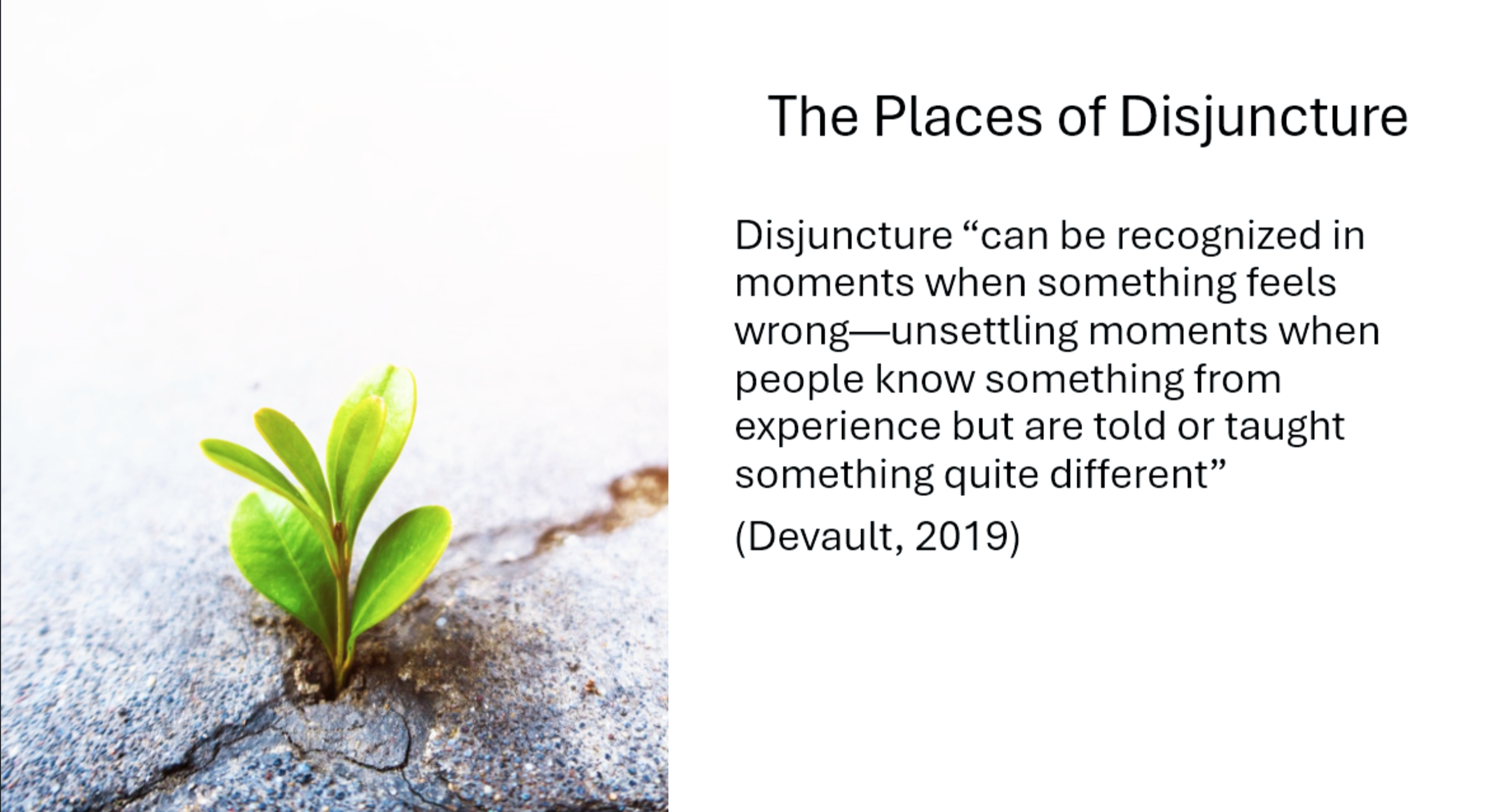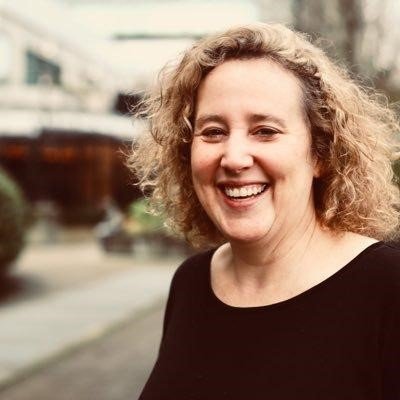Uncovering Disjunctures in Educational Leadership
Disjuncture “can be recognized in moments when something feels wrong - unsettling moments when people know something from experience but are told or taught something quite different” (Devault, 2019). These moments show up everywhere in education, and they often shape our well-being more than we realize.
Disjunctures are gaps or disconnects that arise between intentions and actions or where the official explanation of what is happening is at odds with the explanation provided by those who are actually experiencing it (Rankin et al., 2010). When we slow down and look at embedded institutional practices and familiar ways of working, those gaps become more visible. And once visible, we can begin to question and examine aspects that may not be working as they were intended and may also be impacting our well-being.
In my recent research on the psychological safety of principals and vice principals, I explored one such disjuncture: the role and responsibility of school administrators as a connection between schools and their district office versus what is actually playing out in their day-to-day work. We know from research and from practice that principals and vice principals are essential to communication between schools and districts and to driving meaningful school change (Flessa, 2012). Yet many administrators are not feeling safe to share wisdom, raise concerns, or ask questions at the district level (Wang, 2022).
When administrators are not talking to district leaders, we lose their voice and the voice of the educators who work alongside them. At the same time, district leaders, who often make the majority of important decisions, are doing so without essential data and knowledge from those closest to students and classrooms. (This is a whole other topic to dive into at a future date!)
No one intends this. Yet it is happening. And it is a clear example of a disjuncture: where practice hasn’t lined up with intentions within the system.
Questioning the things that seem odd or inconsistent is important because it leads us to further understanding and allows us to align our practice with our values and intentions. Work is often shaped by social relations and institutional practices that are so familiar to the people doing the work that they continue to work without question (Pence, 2021). Bringing disjunctures to the surface allows us to interrupt that pattern.
Creative tension - the energy created by the gap between our vision and current reality.
I am part of a cohort of education leaders who are “going deeper” into compassionate systems leadership, and in a recent session, we talked about the need to recognize and respond to the hidden structures shaping collective behaviour. This reminds me of Senge’s (2006) concept of creative tension, where the difference between how we want things to be and our current reality creates a tension or energy for change. We need that energy, but before we can work with it, we have to be clear and honest about the present reality.
Sometimes we want to skip that step. It is tempting to do a quick nod to the need to move forward and then to start moving in that direction. But when we do that too quickly, the acknowledgment of harm or misalignment is lost. Moving on too quickly is a dangerous trap that leaves people unheard and unvalued, which is clearly not the intention of anyone.
Compassionate systems leadership reminds us that a clear vision for what we want and an honest assessment of what is actually happening are both essential. You can have both, but it comes with tension, and that’s both good and essential to drive the work forward. You tell your students that learning and growth are often uncomfortable, and that is also true here, so let’s start uncovering the things that are not working and shine the light on them long enough to learn from them and create something better.
I am aware of the irony of saying we should talk about things more to people who have clearly indicated there is a problem with psychological safety, so I will start by sharing the wisdom of my research participants. I am grateful to them for letting us start this conversation, and I am grateful to you for helping it to grow. Over the next few blogs, I will be sharing insights from my research participants and exploring each finding in depth, along with ideas about how to make things better.
Stepping into the uncomfortable is more than just okay; it is the way forward, and your voice matters.
Thanks for reading along and thinking about this topic with me. I’d love to hear what resonates or ideas I have missed. Please share your experiences or ask questions. I won’t have all the answers, but someone will.
Please help me grow this community and spread the word about well-being by sharing this post and encouraging others to subscribe. If you loved the book or podcast, a positive rating or review goes a long way to help too! ~ Gail
References
Flessa, J. J. (2012). Principals as middle managers: School leadership during the implementation of primary class size reduction policy in Ontario. Leadership and Policy in Schools, 11(3), 325–343. https://doi.org/10.1080/15700763.2012.692429
Senge, P. M. (2006). The fifth discipline: The art and practice of the learning organization (Rev. and updat ed.). Doubleday/Currency.
Wang, F. (2022b). Psychological safety of school administrators: Invisible barriers to speaking out. A report from the research project “Subversive Leadership and The Art of War,” University of British Columbia, Vancouver, British Columbia, Canada. https://edst-educ.sites.olt.ubc.ca/files/2022/10/Psychological-Safety-of-School-Administrators-v7-Final.pdf







